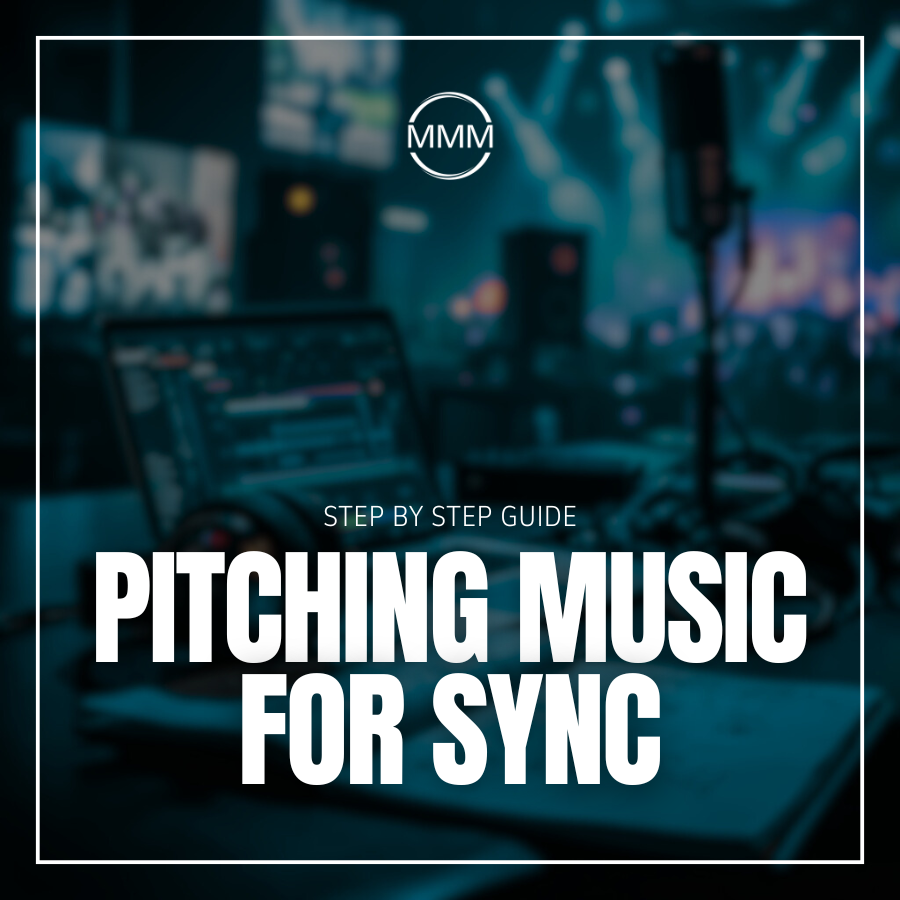Pitching Music for Sync: Step-by-Step Guide
If you’ve ever dreamed of hearing your music in a Netflix series, Super Bowl ad, or indie film, pitching music for sync is your golden ticket. But breaking into the world of sync licensing takes more than talent—it takes strategy.
In this guide, 92MMM will break down how to pitch your music for sync opportunities so you can land placements, grow your income, and boost your exposure.

What Is Sync Licensing?
Sync (short for synchronization) refers to the use of music in visual media like:
- TV shows
- Films
- Commercials
- Video games
- YouTube content
- Trailers and promos
When your song gets synced, you earn a sync fee and possibly performance royalties. It’s one of the most powerful (and often passive) ways to make money as an artist today.
What Makes Music Sync-Worthy?
Before pitching, make sure your music ticks the boxes for sync potential:
- High production quality
- Clear mood/emotion (e.g. uplifting, tense, romantic)
- Clean instrumental version available
- No uncleared samples
- Universal themes (love, freedom, resilience)
Pro tip: Simplicity sells. Music supervisors often want tracks that support the visual story, not overpower it.
Step-by-Step: How to Pitch Your Music for Sync
1. Get Your Tracks Metadata-Ready
Music supervisors need fast, accurate info. Tag your files with:
- Song title
- Artist name
- Genre and mood
- Contact info
- Ownership and splits (who owns what %)
Include both vocal and instrumental versions in your submission folder.
2. Organize Your Assets
Create a sync-ready folder with:
- WAV and MP3 versions
- Instrumental version
- Lyric sheet (if applicable)
- Metadata (filename or doc)
- Split sheet / copyright info
Name your files like this:
Artist_SongTitle_Mood.wav → ex: LuisaFernandaW_SummerLights_Uplifting.wav
3. Research Sync Agencies, Music Supervisors & Libraries
Where to pitch:
- Sync agencies like Musicbed, Songtradr, Marmoset, BMG Production Music
- Music libraries like Epidemic Sound, Artlist, Audio Network
- Direct outreach to music supervisors on IMDB, LinkedIn, or via events like SyncSummit
Make a spreadsheet of your targets and tailor your pitch to each one.
4. Craft a Killer Pitch Email
Here’s a simple format that works:
Subject: Sync Submission – [Song Title] by [Artist Name]
Hi [Name],
I’m [Your Name], an independent [genre] artist based in [city]. I’d love to submit a track that may fit your upcoming projects.
Listen: [streaming link or private playlist]
This song is 100% pre-cleared (both master and publishing). Happy to send stems, instrumentals, or alt versions if needed.
Let me know if you’re open to more.
Thanks for listening,
[Your Name]
[Contact Info]
Keep it short. Avoid attachments unless asked.
5. Follow Up (But Don’t Spam)
If you don’t hear back in 2–3 weeks, send a short follow-up. Something like:
“Just circling back to see if this track might be a fit. Happy to send more options!“
Be respectful of inboxes. A “no” today could be a “yes” later.
Tools & Platforms to Help You Get Sync Deals
| Platform | What It Does |
| DISCO | Industry-standard tool for pitching music with clean metadata |
| Songtradr | Sync licensing platform for indie artists |
| Tracklib | Lets producers sample and clear music for sync |
| Hit The Ground Running | Sync licensing course for musicians |
| Music Supervisors Guild | Great resource to research decision-makers |
How Much Can You Make From Sync?
Sync fees vary a lot depending on the project:
| Project Type | Typical Sync Fee |
| Indie Film | $500 – $2,000 |
| TV Show (Network) | $2,000 – $10,000 |
| Major Ad Campaign | $20,000 – $200,000+ |
| YouTube/Online | $50 – $500 |
And don’t forget performance royalties if your music airs on TV or streaming!
Final Thoughts: Pitching for Sync Is a Long Game
Getting your music placed in TV or film isn’t about one lucky email—it’s about consistently showing up, building relationships, and presenting yourself like a pro.
Keep creating sync-friendly tracks, maintain a clean and organized catalog, and be patient. One well-placed sync can change your entire career.

